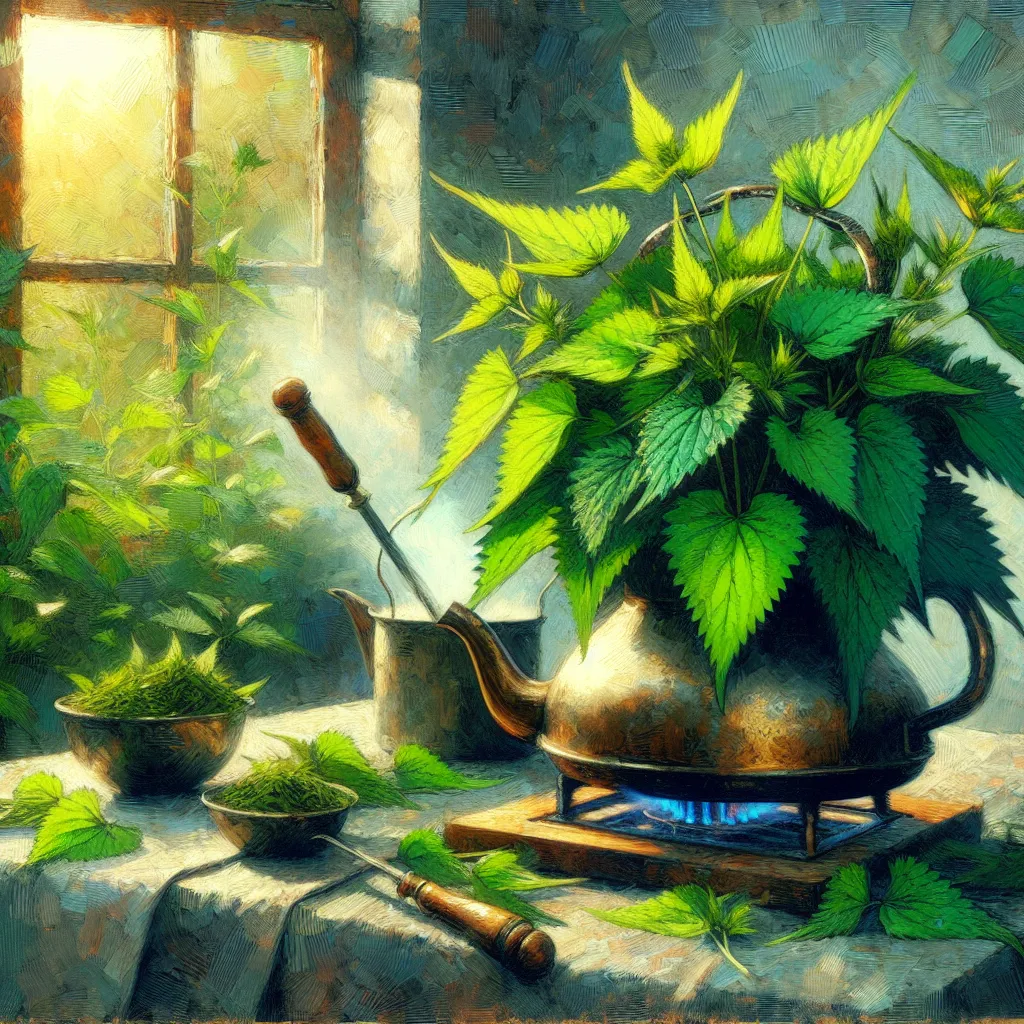
- Published on
- Authors

- Name
- Plant Health
How to Make Your Own Nettle Tea for Allergies and Joint Health
Greetings, seekers of natural wellness! Today, we embark on a botanical journey to explore the wonders of nettle tea, a venerable infusion celebrated for its multifaceted health benefits. Not only does nettle tea help to alleviate allergies, but it also supports joint health, making it a staple in holistic medicine cupboards.
The Healing Powers of Nettle
Nettle (Urtica dioica), often considered a pesky weed, is a powerhouse of nutrients and bioactive compounds. Let’s delve into why this green gem should be part of your herbal apothecary:
- Allergen-Busting: Nettle contains quercetin, an antioxidant known to reduce inflammation and block histamines, providing relief from hay fever and allergic rhinitis.
- Joint Health: Rich in iron, calcium, magnesium, and silica, nettle helps to strengthen bones and joints, combating issues like arthritis.
- Detoxification: Nettle acts as a natural diuretic, cleansing the body of toxins and supporting kidney function.
- Nutritional Profile: Packed with vitamins A, C, K, and several B vitamins, nettle is a nutritional powerhouse.
Gathering and Preparing Nettle
To create your nettle tea, you can either forage for fresh nettles or purchase dried nettle leaves from a reputable supplier. Ensure that your nettles come from an area free of pollution and pesticides.
Foraging Fresh Nettles
- Timing: The best time to forage nettles is in the spring when the leaves are tender and less fibrous.
- Safety First: Wear gloves, long sleeves, and use scissors to avoid the sting of nettle hairs.
- Selection: Choose the top young leaves, as they are the most potent and least fibrous.
Drying Fresh Nettles
- Rinse: After foraging, rinse nettles thoroughly to remove dirt and insects.
- Drying: Spread nettles in a single layer on a drying rack, or use a dehydrator. Ensure good air circulation.
- Storage: Once dried, store the leaves in an airtight container away from light and moisture.
Brewing the Perfect Nettle Tea
Ingredients
- 1-2 teaspoons of dried nettle leaves (or a small handful of fresh leaves)
- 1 cup of hot water (not boiling, around 200°F or 93°C)
- Optional: Honey, lemon, or other herbs for flavor
Instructions
- Boil Water: Heat water to just below boiling point.
- Steep: Place nettle leaves in a teapot or cup. Pour hot water over the leaves.
- Timing: Allow the mixture to steep for 5-10 minutes. The longer the steeping time, the stronger the infusion.
- Strain: Strain the leaves using a fine mesh strainer or tea infuser.
- Enhance: Add honey, lemon, or complementary herbs such as peppermint for added flavor and benefits.
Best Practices for Maximizing Benefits
- Consistency: For best results, drink nettle tea daily. Aim for 1-3 cups per day depending on your tolerance and desired effect.
- Synergy: Combine nettle tea with other anti-inflammatory herbs like turmeric and ginger for amplified benefits.
- Hydration: Since nettle is a diuretic, ensure you stay well-hydrated by drinking plenty of water throughout the day.
Precautions and Considerations
While nettle tea is generally safe, it's essential to be mindful of the following:
- Pregnancy and Lactation: Consult with a healthcare provider before consuming nettle tea.
- Medication Interactions: If you are on blood thinners, blood pressure medications, or diuretics, check with your doctor before use.
- Allergic Reactions: Although rare, some individuals might have sensitivities to nettles.
Embrace the Green Elixir
By incorporating nettle tea into your daily wellness regimen, you are tapping into an ancient tradition of natural healing. Through mindful preparation and consistent use, you can leverage the full spectrum of nettle’s therapeutic powers to support both your allergy management and joint health.
May your journey with nettle tea be as nourishing as the plant itself. Until next time, stay rooted in nature’s wisdom!
Disclaimer: This blog post is for informational purposes only and is not a substitute for professional medical advice, diagnosis, or treatment. Always seek the advice of your physician or qualified health provider with any questions you may have regarding a medical condition or before starting any new health regimen.
